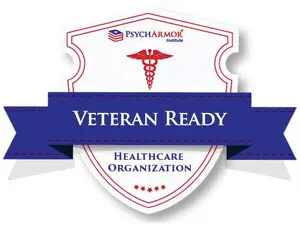It Pays to Get Treatment – But How Will You Pay For Treatment?
 You may find it easy to come up with reasons to avoid going to treatment for your substance use disorder right now. While many of those reasons might just be rationalizations or excuses, some of them might be genuine concerns. For example, you might be wondering how you will be able to pay for treatment.
You may find it easy to come up with reasons to avoid going to treatment for your substance use disorder right now. While many of those reasons might just be rationalizations or excuses, some of them might be genuine concerns. For example, you might be wondering how you will be able to pay for treatment.
Things to Know if You Have Medical Insurance
Two laws are very important for people who have medical insurance and who need treatment for a substance use disorder. The Patient Protection and Affordable Care Act (often called the Affordable Care Act or Obamacare) and the Paul Wellstone and Pete Domenici Mental Health Parity and Addiction Equity Act (or MHPAEA) each provide important protections for those struggling with substance use disorders.
Under the Affordable Care Act, most individual, state, or federal marketplace insurance plans must provide coverage of the treatment of substance use disorders and cognitive behavioral therapy (CBT). Meanwhile, MHPAEA requires insurance plans for businesses with more than 50 employees to cover substance use disorder treatment and CBT to the same extent they cover any other type of medical treatment.
Pay Attention to Levels of Coverage
It is important to remember that different insurance plans will offer different levels of coverage for substance use disorder treatment. The laws noted above do not require these plans to cover each and every treatment option that might be available to you. For example, some plans may only cover outpatient treatment. Others may cover inpatient or residential care, but the length of coverage may vary; some plans may cover as few as 15 days of residential treatment, while others may cover up to 90 days.
You will also want to note what your plan does and does not cover in terms of simultaneous treatment of mental health disorders, including anxiety and depression. Checking the details of coverage for home health visits and follow-up counseling is also essential. Be aware that most plans will require you to seek treatment from an accredited facility (which is in your best interest in any event) that is part of their insurance network.
We should note that insurance companies are not allowed to discriminate against individuals as a result of a substance use disorder diagnosis. Your premiums cannot be raised simply because you seek treatment for your disorder.
The paperwork (or online details) of your insurance plan will include a Summary of Benefits and Coverage that will tell you exactly what your plan covers. If you cannot locate your Summary of Benefits and Coverage, contact your insurance company to get those details so that you can make informed decisions about treatment options based on your coverage.
Filling out Seabrook’s insurance verification form allows our staff to verify which of our services your insurance will cover. Knowing this in advance can provide peace of mind regarding the financial aspects of seeking treatment.
Things to Know If You Do Not Have Medical Insurance
If you don’t have medical insurance, it may seem as if it is impossible for you to get treatment. You might be fully aware that you need help to overcome your substance use disorder, but if you don’t have the means to pay for treatment, the situation might seem hopeless.
It is essential to think of treatment as an investment—in yourself and in your future. If you allow your substance use disorder to go untreated, the end result is likely to be far more grim than the financial challenges of paying for treatment.
That’s all well and good, you might be thinking, but if you don’t have insurance and you don’t have ready cash at hand, what are your options? Everyone’s situation is different, but some ideas include:
- Dipping into your emergency or retirement savings. You may, for example, be able to borrow from your 401k or other retirement plan and use those dollars to fund your treatment. You might also consider selling things you own (for example, perhaps you could sell a second vehicle) to raise funds.
- Turning to family, friends, or fundraisers. It is never easy to ask the people in your life to loan or give you money. But if your friends and family have witnessed the ways in which addiction is undermining your life, they may be willing to help to the extent that they are able. You can also consider fundraisers—including online fundraisers via various crowdsourcing sites—that might allow a lot of people to each pitch in a little. Those small gifts can add up and help defray the costs of treatment.
- Taking out a loan. You may qualify for a low-interest medical loan—even if you have less-than-stellar credit. These loans can be used for necessary medical care, including treatment for a substance use disorder.
You might be understandably reluctant to pursue any of the above options, but it is key to remember that not seeking treatment is likely to have a financial cost as well. You might lose your job, for example, due to poor performance or misbehavior in the workplace. You may have medical bills connected to injuries or overdoses—or to conditions caused or worsened by the use of drugs or alcohol. You could face legal fees and court costs due to a drug arrest, DUI, or other issues related to your substance use. And, of course, purchasing drugs and alcohol is an ongoing expense in and of itself.
We Can Help You – And Help You Sort Out Your Payment Options
At Seabrook, we are confident we can help you overcome a substance use disorder and get on the path to sustained sobriety. But we are also aware that figuring out how to pay for treatment can be a cause of stress and anxiety. Please know that we are here to help you find the best financial options.



